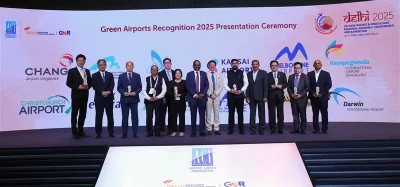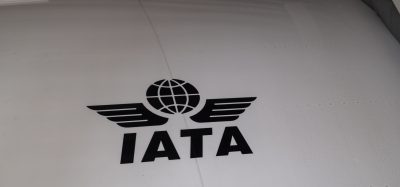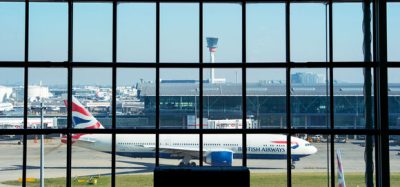Keeping India flying
- Like
- Digg
- Del
- Tumblr
- VKontakte
- Buffer
- Love This
- Odnoklassniki
- Meneame
- Blogger
- Amazon
- Yahoo Mail
- Gmail
- AOL
- Newsvine
- HackerNews
- Evernote
- MySpace
- Mail.ru
- Viadeo
- Line
- Comments
- Yummly
- SMS
- Viber
- Telegram
- Subscribe
- Skype
- Facebook Messenger
- Kakao
- LiveJournal
- Yammer
- Edgar
- Fintel
- Mix
- Instapaper
- Copy Link
Posted: 8 August 2011 | Sanjay Varkey, Chief Executive Officer of Shell MRPL Aviation Fuels and Services Private Limited (SMA) | No comments yet
As the Indian aviation market continues its growth, the involvement of Shell Aviation Fuels has had much influence. International Airport Review spoke to CEO Sanjay Varkey to find out why the Indian market will continue to flourish.
IAR: Shell Aviation first began its operations in India back in 2008 at Bangalore and Hyderabad Airports respectively, with nine further airports in the three years since. Has the growth in aviation in that part of the world meant that the expansion into those nine other airports was inevitable? Could it have been quicker?
SV: When Shell MRPL Aviation Fuels and Services Private Limited (SMA) launched aviation fuel operations in India in 2008, Bangalore and Hyderabad were the country’s only two open access airports. Further expansions in India needed to align with access, permissions and developments at airports. In the two years since then, SMA has concluded industry first infrastructure sharing agreements in India that have enabled a rapid network expansion. Shell is currently the only multinational oil company with a government license to market aviation fuels in India. The network expansion into 12 airports across the country reinforces our strong focus on this market, which is growing at a remarkable rate.
As the Indian aviation market continues its growth, the involvement of Shell Aviation Fuels has had much influence. International Airport Review spoke to CEO Sanjay Varkey to find out why the Indian market will continue to flourish.
IAR: Shell Aviation first began its operations in India back in 2008 at Bangalore and Hyderabad Airports respectively, with nine further airports in the three years since. Has the growth in aviation in that part of the world meant that the expansion into those nine other airports was inevitable? Could it have been quicker?
SV: When Shell MRPL Aviation Fuels and Services Private Limited (SMA) launched aviation fuel operations in India in 2008, Bangalore and Hyderabad were the country’s only two open access airports. Further expansions in India needed to align with access, permissions and developments at airports. In the two years since then, SMA has concluded industry first infrastructure sharing agreements in India that have enabled a rapid network expansion. Shell is currently the only multinational oil company with a government license to market aviation fuels in India. The network expansion into 12 airports across the country reinforces our strong focus on this market, which is growing at a remarkable rate.
How do MRPL and SMA share and compliment the Shell ethos in this area?
Shell and MRPL are committed to creating a successful enterprise, through SMA, that leverages each partner’s strengths to deliver an effective proposition in India to customers that see value in being fuelled by SMA.
Does the selective growth strategy pose a risk of alienating other, perhaps, equally emerging markets that have not quite yet ‘emerged’?
Shell actively reviews its portfolio in line with its selective growth strategy. This includes identifying airport network expansion opportunities in emerging markets that meet the needs of our customers. This further strengthens Shell’s competitive position as the global aviation fuels provider of choice for both local and international airlines, and enables our customers to benefit increasingly from our proven world-class expertise, leading technology and global best practices at airports around the world.
What initiatives do Shell have in place to cope with the growing demand for improved fuel delivery in India?
Shell aims to enhance operational and safety standards in India’s aviation services industry by introducing international best practices, operational efficiency and pricing transparency.
Since establishing operations in India, SMA has introduced international approaches such as Mean of Platts Arab Gulf (MoPAG) plus differential pricing, which provides more transparency compared to Posted Airfield pricing.
Through SMA, customers who choose Shell benefit from experience beyond just the supply of aviation fuel. With our global footprint, Shell offers a range of innovative products and services, including lubricants, risk marketing, CO2 trading and alternatives to oil-based aviation fuels.
Our customers can also leverage Shell’s extensive experience in working with airport authorities and other stakeholders to improve overall airport safety and operating standards, including into-plane fuelling, fuel hydrants design, airport network planning and fuel farm systems.
Shell is also among the largest aviation fuels traders in the region and can further assure supplies and competitiveness in the long term through imports and coastal movements. This would however need a more comprehensive government policy on sharing supply chain infrastructure for aviation fuels.
Were the initial operations at Bangalore and Hyderabad used as a ‘trial’ period before branching out to the other airports?
SMA has strived to meet customer demand for a wider network in India and in the two years since then, has concluded industry first infrastructure sharing agreements that have positioned it well to grow alongside customers that see value in being fuelled by Shell.
What safety standards do you currently implement and how do you aim to maintain and enhance these?
Whenever Shell Aviation plans to enter a new market, it assesses with the appropriate authorities and other stakeholders the current airport safety and operating standards. In accordance with Shell’s Global Compliance Framework, Shell’s accredited inspectors and auditors pre-inspect all new facilities, and operations will only begin after any identified gaps are closed or a waiver is obtained with a mitigation plan from the competent authority. Shell’s inspectors will also visit all locations and airports on an annual basis to review and identify how to further improve the operations. Shell has extensive experience in working with airport authorities and other stakeholders to improve overall airport safety and operating standards, including into-plane fuelling, fuel hydrants design, airport network planning and fuel farm systems. Discussions are underway with authorities in India to explore providing these services.
SMA has implemented Shell’s facilities inspection processes and deployed a distinct and robust Road Transport Management System (RT-MS) to manage RT Health Safety Security and Environment (RT-HSSE), given the unique road safety challenges faced in India.
How are Shell contributing to the inevitable ‘green issue’ questions associated with aviation fuels?
From reducing CO2 emissions and noise pollution to improving local air quality, the scale of the challenge to reduce the aviation industry’s environmental footprint needs a collaborative effort across airlines, aircraft manufacturers, governments, airports and fuel suppliers alike. While energy savings in aircraft, engines and operations will bring fuel efficiency, growth forecasts mean aviation will need more, not less, fuel in the future.
With a 100-year history in aviation fuel innovation, Shell is well positioned to help the industry meet this challenge and is a leader in developing new fuels. For example, Shell has developed a synthetic liquid jet fuel processed from natural gas – known as ‘gas-to-liquid’ (GTL) – which can be ‘dropped in’ to the jet fuel pool. GTL aviation fuel is a cleaner burning fuel and could improve local air quality around airports because it produces lower sulphur dioxide and particulate emissions.
In the longer term, biofuels could contribute through both diversifying supply away from crude oil and by playing a role in reducing overall CO2 emissions. While Shell is among the world’s largest distributors of biofuels for road transport, biofuels used for road transport today are not technically suitable for use in aviation. There are some good options for aviation but there are still significant challenges to overcome in moving the most promising options from the lab to widespread commercial deployment. This is where a global regulatory framework that rewards all mitigation measures on a ‘level playing field’ and paves the way for the introduction of alternative fuels can help.
About the Author
Sanjay Varkey was appointed Chief Executive Officer for Shell MRPL Aviation Fuels and Services Private Limited (SMA) in March 2008. In this role, Sanjay oversees SMA’s interests in aviation fuel and fuels related services in India. Sanjay’s earlier experience in Shell, all of which has been in India, includes assignments in Lubricants, Liquefied Petroleum Gas (LPG), eBusiness, Strategy and Portfolio, and Retail. Much of his experience has been in developing and executing strategies for new market entries for businesses in India. Sanjay joined Shell in 1994 and has a Master’s degree in Business Administration. In his spare time, he enjoys travel, playing the guitar, sports and reading.

















